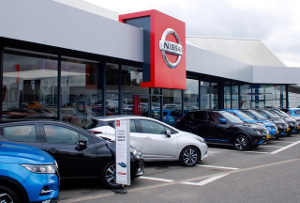July New Vehicle Registrations Drop 9%

According to the latest figures from the Society of Motor Manufacturers and Traders (SMMT), new car registrations in the UK fell by 9.0% to reach 112,162 units in July 2022 to 112,162 units, the fifth consecutive month of decline. although the monthly fall is the smallest recorded in 2022.
Supply chain issues globally, mainly due to the limited number of semiconductors available to the motor trade industry is the major contributing factor. Chinese Covid restrictions is also impacting logistics and manufacturing and logistics companies, plus many of the global car parts are manufactured in Ukraine.
Mike Hawes, SMMT Chief Executive, said: “The automotive sector has had another tough month and is drawing on its fundamental resilience during a third consecutive challenging year as the squeeze on supply bedevils deliveries. While order books are strong, we need a healthy market to ensure the sector delivers the carbon savings government ambitions demand. The next Prime Minister must create the conditions for economic growth, restore consumer confidence and support the transition to zero emission mobility.”
In the UK market registrations remained stable amongst private consumers, but overall, there was an 18.2 per cent fall in motor trade industry registrations, like within fleet companies for example, which is why there have been reports that the industry is now prioritising private orders.

So far in 2022 electric vehicles (EV) have contributed to nearly 14% of all vehicle sales, and there was nearly a 10% increase in EV purchases compared with the same period in 2021. After further analysis, The Society of Motor Manufacturers and Traders’ (SMMT) from the motor trade industry, forecast for all of 2022 has been reduced to 1.6 million registrations, which would make up a 2.8 per cent fall compared with 2021.
2023 predictions have also been reduced but it is still expected to be an improvement compared to 2022 with around 1.89 million registrations, which would see EVs make up a huge 27.8 per cent of market share.
Following the release of the data, RAC EV spokesperson Simon Williams said: “The global semiconductor shortage continues to affect the supply of new cars, though electric vehicle registrations continue to buck the trend of market decline with year-on-year growth.”
“With high fuel prices and the overall cost of living continuing to bite, drivers are increasingly looking to low-running-cost alternatives to petrol and diesel vehicles. However, the upfront cost remains a barrier for private EV purchases, so we call on the Government to think about reinstating the plug-in car grant.”






